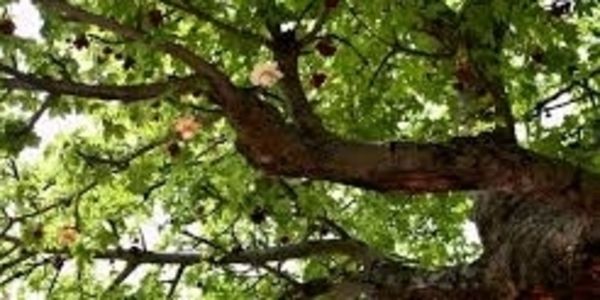
What's amazing about this ancient Parijat tree of Uttar Pradesh
The Parijat tree in Barabanki district of Uttar Pradesh is a protected tree. By the order of local district magistrate, any kind of damage to the tree is strictly prohibited. According to modern science, the tree is known as baobab tree whose origin is in Africa and is usually found in Sub-Sahara Africa and hence its presence in the fertile land of India makes it unusual and rare. While locals believe that the tree is more than thousand years old, scientists have not yet been able to determine the exact age of the tree. The tree is also known as 'the tree from paradise' due to its mythological significance. It is a unisex tree as its offshoots do not give rise to another sapling of the tree. Its flowers do not produce fruits and seeds. The leaves on the lower portion of the tree have five tips like the fingers of our hand and leaves on the upper portion have seven tips. The tree produces fragrant flowers occasionally (usually after Ganga Dusshera) called Parijat flowers. They are white on blooming and turn yellow on drying. The trunk of the tree has a perimeter of 50 feet and its height is close to 45 feet. There are eight species of this class of trees out of which six are in the African continent and the other two are found in the Arabian Peninsula and Australia respectively. Therefore, its presence in India is considered special. It is located precisely in Kintoor village, 38 km from Barabanki. The village gets its name from Kunti who was the mother of the Pandavas in the epic Mahabharata. According to mythology, the mighty Pandav Arjun brought this tree from heaven for his mother Kunti who would offer Parijat flowers of this divine tree to Lord Shiva. There is also another mythological tale which claims that Lord Krishna brought this tree for his beloved queen Satyabhama. The tree is said to have magical and wish granting powers. The newly- weds of this region visit the tree for blessings. Every Tuesday, a fair is held where people throng in thousands and worship the tree. The postal department had issued a stamp of the tree in March 1997. The ancient tree has also garnered lots of attention from botanists who have been responsible for its good health. Whenever the tree gets infested, they suggest the necessary remedies. In 2010, the Uttar Pradesh government formed a committee to save the tree from attacks from moths and insects. Over the years steps have been taken to prevent the tree from dying. Due to the sustained efforts of the authorities and the botanists, the tree till this date stands tall in all glory.
